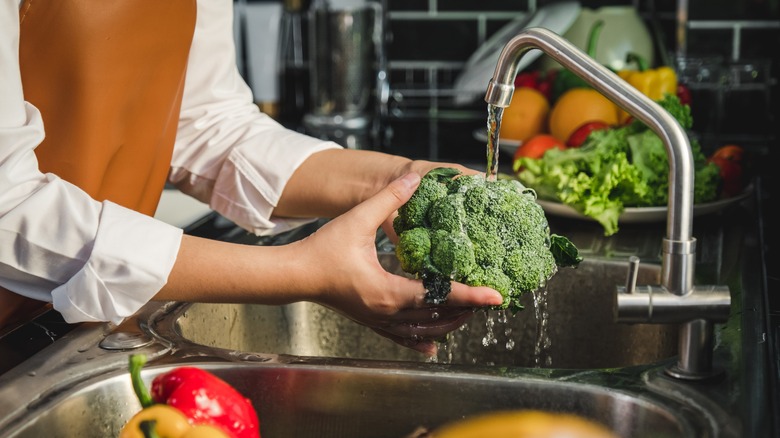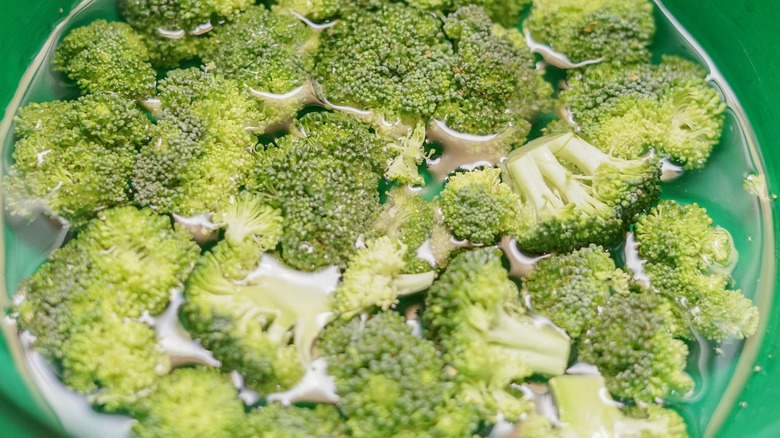How To Thoroughly Clean Broccoli With What You Have In The Pantry
Broccoli is one of the most versatile veggies you can have in your kitchen, and it's excellent in everything from rich dishes like five-spice beef and broccoli to light salads where it provides a satisfying crunch. However, like any other vegetable you find at the grocery store (or in your garden), it's important to thoroughly wash broccoli before eating it. This is because broccoli has tons of nooks and crannies where things like dirt and bugs can get stuck, even after a rinse under the sink. Moreover, broccoli can also harbor pesticides, depending on how it is grown. Although not included in the Environmental Working Group's Dirty Dozen list, which contains fruits and vegetables most often contaminated with pesticides, broccoli wasn't deemed clean either. Instead, it falls into a middle where cleaning is still very much warranted, especially since the vegetable can also contain dangerous bacteria like Listeria, Salmonella, and E. coli.
Fortunately, there is an easy way to thoroughly clean broccoli using something that most folks already have in their kitchens: white vinegar. Just don't mix vinegar with baking soda (another popular veggie washing trick) because the two essentially cancel each other out.
Washing broccoli in a vinegar solution helps remove bacteria and kills off any insects hiding in the florets. To clean broccoli this way, just mix about ⅓ cup of vinegar with 2 ½ cups of water and let the veggie soak in it for around five minutes. The broccoli can then be rinsed under cold water to remove the vinegar.
Steer clear of chemical produce washes
While cleaning broccoli is important, some methods aren't recommended. For example, those chemical produce cleaners you've probably seen at your local grocery store. According to the USDA, all commercial produce washes should be avoided because the FDA has not approved them as safe to consume. This is because the FDA hasn't evaluated the potential residue left behind by these chemical washes, so there is no standard for knowing whether or not they are safe to ingest.
Likewise, using things like dish soap and detergents is also strongly discouraged because they can be absorbed into the porous vegetables. Not only will this make them taste terrible, but you will be ingesting the chemicals left behind, which can potentially make you sick.
If you want the cleanest broccoli possible, stick with using plain white vinegar and water to avoid unnecessary contamination from unapproved chemicals. Now, if you don't have vinegar on hand, you can rinse a head of broccoli upside down under running water to flush out dirt. Alternatively, you can cut off the florets — but save the broccoli stalks and turn them into delicious snacks – and clean them under running water in a colander. Both these methods will give you clean broccoli in place of vinegar, and they're much safer than commercial washes.

